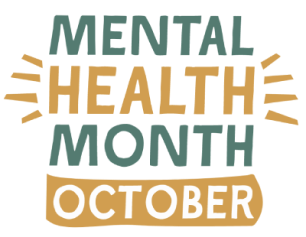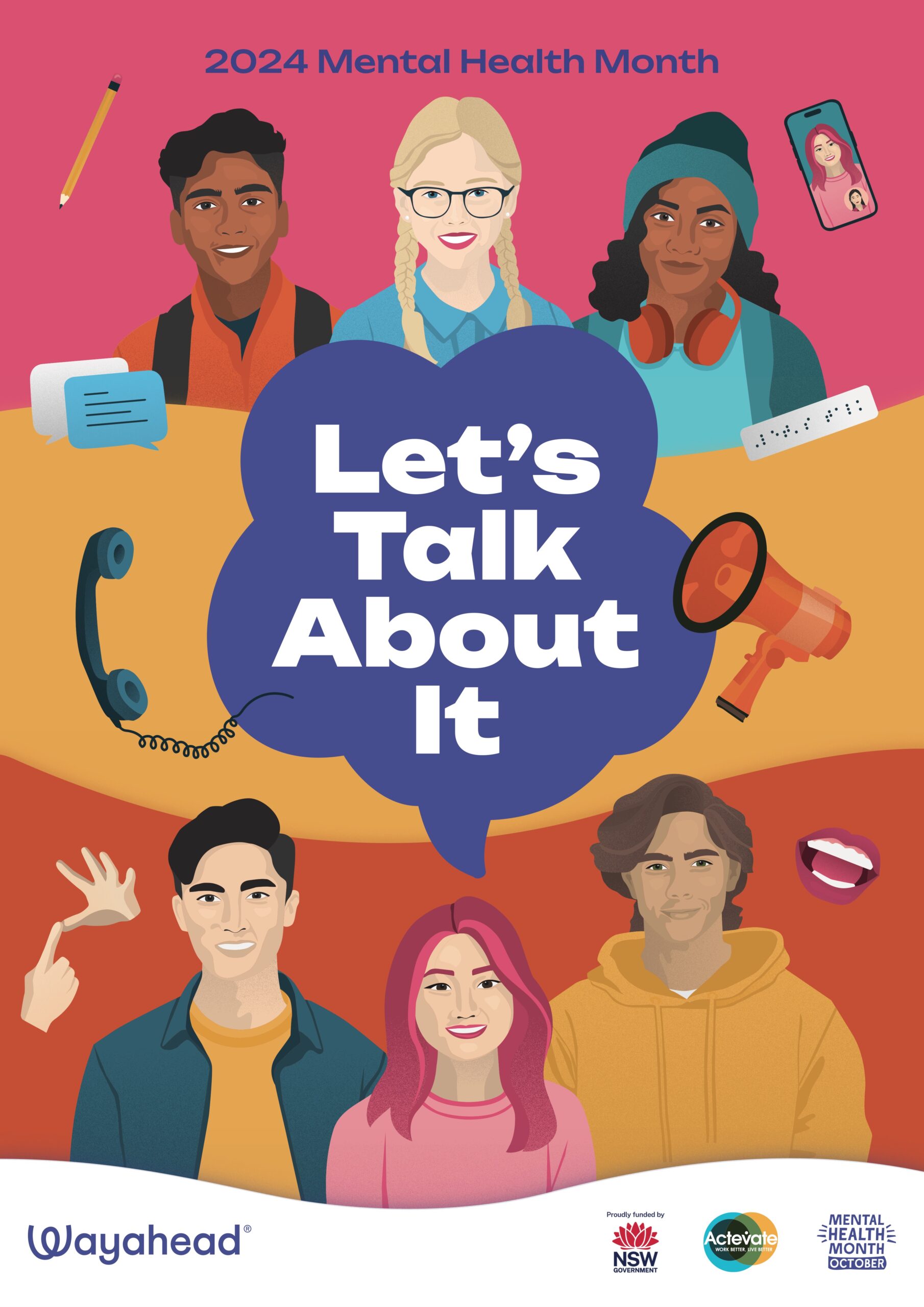Welcome back to the THRIVE articles!
This October, NSW is celebrating its annual Mental Health Month. This year’s theme, “Let’s Talk About It,” encourages all of us to reflect on our mental health and overall wellbeing. It highlights the importance of maintaining good mental health in our daily lives and promotes a proactive approach to seeking help when necessary.
In this article, we will help you understand what good mental health looks like so we can strive towards it! Read till the end to find out three secret strategies to a good mental health that will strengthen your mental well-being!

Let’s talk about it; what is good mental health?
Good mental health is a state of wellbeing where you feel good and function well in the world. It is more than just the absence of mental disorders.
According to a scoping review, here are a few signs of good mental health and let’s check it together!
- You can manage daily stresses of life.
- You can use your abilities to work productively.
- You feel connected to other people and have a sense of purpose.
- You feel happy, confident, hopeful and generally satisfied with life.
You can take the Mental Fitness Check-up Quiz here to show your overall outlook on life and be linked to resources on dreams, friendships, and health! If you ever need any support, you can always book an appointment with a Student Wellbeing Adviser to have a chat about your worries!
Although some emotions can be overwhelming, these experiences can help us grow as a person and develop effective strategies that we could use to face similar challenges in the future! For example, going through a tough time during the exam period might help us identify what triggers our stress. The triggers could be studying last minute or poor time management which we could fix to prepare ourselves better next time!

Nonetheless, I will share with you three amazing strategies that could help you strengthen a good mental health.
Strategy one: Self-perceptions and values
Self-perceptions are a collection of subjective beliefs about our own characteristics. If we can reflect and understand who we are as a person, then we will be able to recognise our self-worth, positive qualities, and capabilities. This awareness of our personal capabilities along with the attitudes and beliefs that allow us to live a valued life will help us develop a positive self-esteem. Check out this VIA Character Strengths Survey to discover your greatest strengths!
Strategy two: Emotional awareness, regulation, and expression
Awareness is truly approaching and accepting our emotions genuinely. As humans, we tend to avoid painful emotions and some might even feel guilty for having it in the first place. However, the truth is that accepting and validating our emotions is the first step to have better understanding and control of it.
Additionally, overwhelming emotions can be regulated by developing empathy in learning to self-soothe, restore emotional balance, and build resilience. Self-soothing methods that we could try are breathing exercises, relaxation, and self-talk to calmly stabilise our emotions.
Expressing our emotions to our circle of support can also help us to feel connected to others. You can read the previous article on circles of support to learn more about how you can receive support from others to pass through your lower moments. We can try to open up and express our feelings little by little until we finally feel comfortable with communicating to others.
Strategy three: Hobbies and leisure activities
We can always allow the time to do the things we love and enjoy! This relaxing activities are crucial elements in supporting our mental well-being.
We could find hobbies in areas that we love such as reading, singing, and many more to learn new skills and make us feel fulfilled. UNSW College has various student clubs and weekly activities that you could join here. Find yourself amongst a community of supportive people and experience personal growth with us!
Thank you for reading this article! I wish all of us good luck in building a resilient and good mental health to thrive in life!
Student Profile

Name: Winston
What did you study at UNSW College?
Diploma of Engineering
What are you studying at UNSW?
Bachelor of Chemical Product Engineering
What would be your advice for building good mental health?
I’d say having a structured daily schedule has greatly improved my mental health as there are days where I’ll be super busy and have no time to figure out a balance between work and leisure. Scheduling helped me find that balance and as a result I spend less time worrying and more time focusing on what is ahead.
What activities have helped you to improve your mental health?
I think what helped me improve my mental health is interacting with people. Most of the time I enjoy sharing my kindness to people that I interact with. That in turn boosts my confidence and it keeps me at ease knowing that I might make someone’s day better.
Upcoming THRIVE Thursday Events
THRIVE Thursdays – How to THRIVE: Unlock Your Best Rest
Date: Thursday 10 October
Time: 12pm – 1pm
Location: Room 131, Level 1, L5 Building, UNSW College
THRIVE Thursdays – Fill Your Cup
Date: Thursday 17 October
Time: 12pm – 5pm
Location: Level 1 Courtyard, L5 Building, UNSW College
THRIVE Thursdays – Friendship and Worry Bead Bracelets
Date: Thursday 24 October
Time: 12pm – 5pm
Location: Level 1 Courtyard, L5 Building, UNSW College
THRIVE Thursdays – Paint, Plant & Grow
Date: Thursday 31 October
Time: 12pm – 5pm
Location: Level 1 Courtyard, L5 Building, UNSW College
For more College events, click here.
Resources



